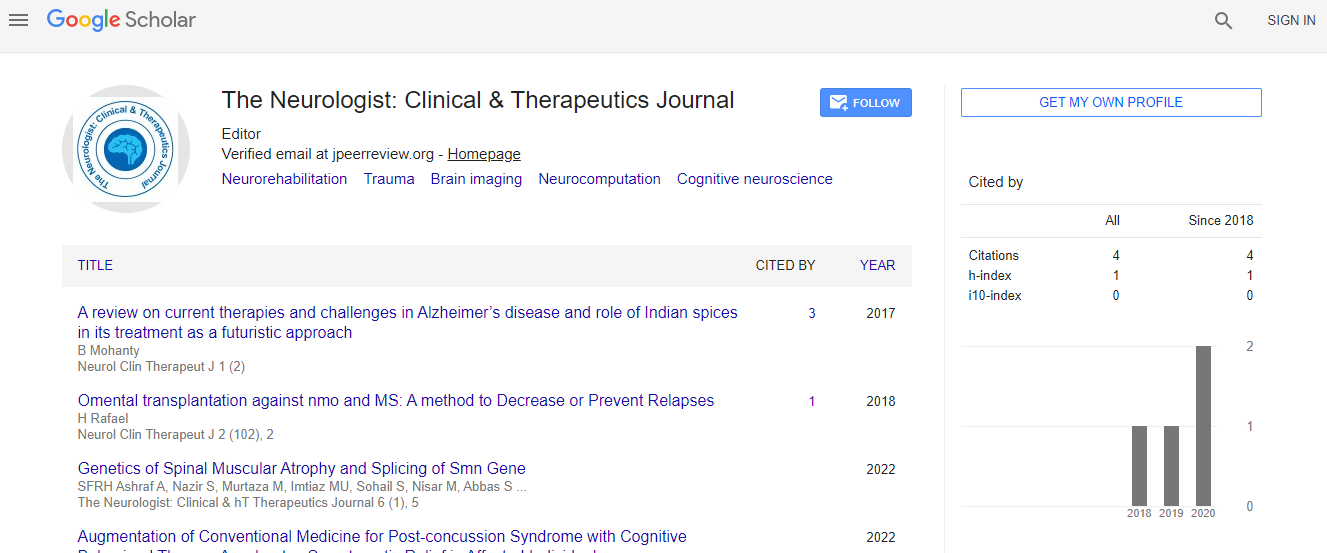Implementing Adult Learning Strategies in Neurology Residency Evaluating Educational Impact and Outcomes
*Corresponding Author: Cameron Decoly, Department of Neurology, University of Wisconsin School of Medicine and Public Health, Madison, USA, Email: camerondecoly@gmail.comReceived Date: Sep 03, 2024 / Published Date: Sep 30, 2024
Citation: Cameron D (2024) Implementing Adult Learning Strategies in NeurologyResidency Evaluating Educational Impact and Outcomes. Neurol Clin TherapeutJ 8: 225.
Copyright: © 2024 Cameron D. This is an open-access article distributed underthe terms of the Creative Commons Attribution License, which permits unrestricteduse, distribution, and reproduction in any medium, provided the original author andsource are credited.
Abstract
Adult learning principles are essential for effective medical education, particularly in residency programs where residents need to assimilate complex knowledge and skills efficiently. In neurology residency, applying these principles can potentially enhance learning outcomes and improve clinical competencies. This study aims to evaluate the implementation of adult learning strategies in a neurology residency program and assess their impact on educational outcomes and resident performance. A mixed-methods approach was used to assess the effectiveness of adult learning strategies integrated into the neurology residency curriculum. Quantitative data were collected through pre- and postimplementation assessments, including knowledge tests and performance evaluations. Qualitative data were gathered from resident surveys and focus groups to explore their experiences and perceptions of the new learning strategies. The implementation of adult learning strategies, including problem-based learning, self-directed study, and interactive workshops, led to a significant improvement in resident knowledge and clinical skills. Residents reported increased engagement, better retention of information, and enhanced critical thinking abilities. Qualitative feedback indicated high satisfaction with the new methods and a positive impact on their professional development. Integrating adult learning strategies into neurology residency programs enhances educational outcomes and resident satisfaction. The findings support the adoption of these strategies to improve the efficacy of medical education and better prepare residents for clinical practice.

 Spanish
Spanish  Chinese
Chinese  Russian
Russian  German
German  French
French  Japanese
Japanese  Portuguese
Portuguese  Hindi
Hindi 